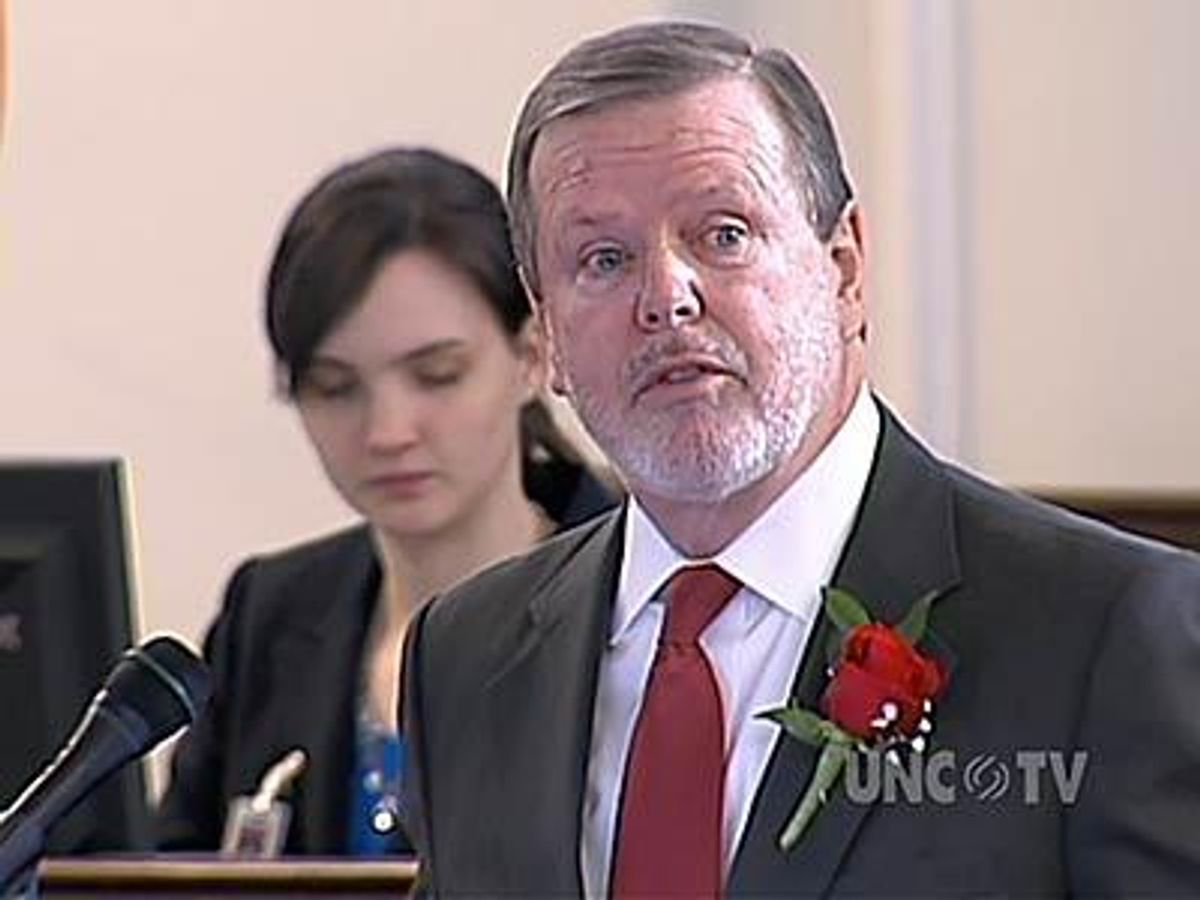North Carolina is halfway to overriding the governor's veto of a bill that would allow public employees to opt out of participation in civil marriage services if they have religious objections to same-sex marriage.
The state Senate Monday voted 32-16 to override Gov. Pat McCrory's veto, and a vote in the House could come as early as Tuesday or Wednesday, North Carolina LGBT publication QNotes reports. McCrory vetoed the bill last week.
The legislation would give county registers of deeds and magistrates the right to be recused from issuing marriage licenses or permorming civil marriage ceremonies, respectively, for at least six months, as long as other staffers were available to provide these services. While the bill arose from some officials' objections to same-sex marriages, any official taking advantage of the law would be exempt from duties for all marriages during the recusal period. The law would assure they would not be subject to prosecution for refusing to perform their duties.
In announcing his veto last week, McCrory, a Republican, issued this statement:
"I recognize that for many North Carolinians, including myself, opinions on same-sex marriage come from sincerely held religious beliefs that marriage is between a man and a woman. However, we are a nation and a state of laws. Whether it is the president, governor, mayor, a law enforcement officer, or magistrate, no public official who voluntarily swears to support and defend the Constitution and to discharge all duties of their office should be exempt from upholding that oath; therefore, I will veto Senate Bill 2."
The bill's supporters said it was necessary to assure public employees' religious freedom. "Civil servants have rights too," Senate President Pro Tempore Phil Berger, the measure's lead sponsor, said on the Senate floor today, QNotes reports. "The government should respect those rights. Just because someone takes a job with the government does not mean they give up their rights ... or their ability to act on their beliefs."
Opponents of the bill said it could open doors to discrimination and create hardships in less populous counties where there are few registers and magistrates to fill in for those recused.
The override vote, like the original vote on the measure, came largely along party lines, with most Democrats opposing the bill, most Republicans supporting it, QNotes reports.














































































